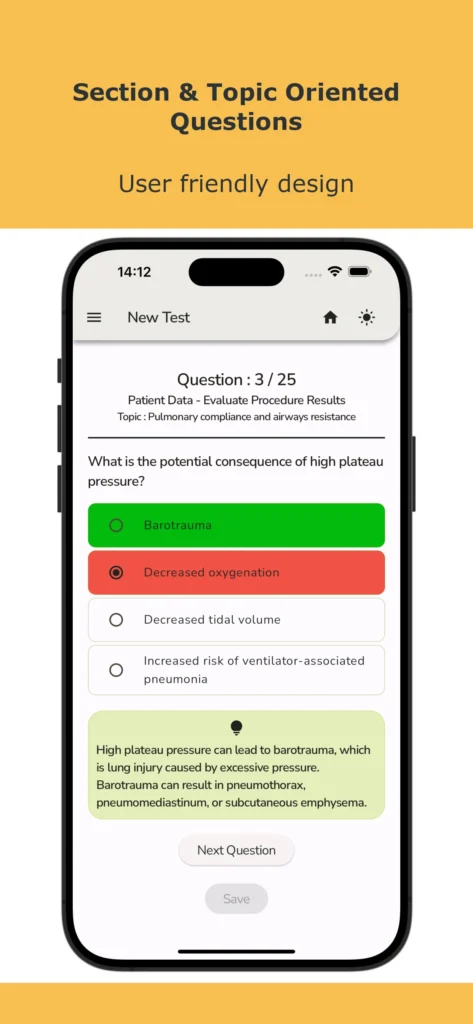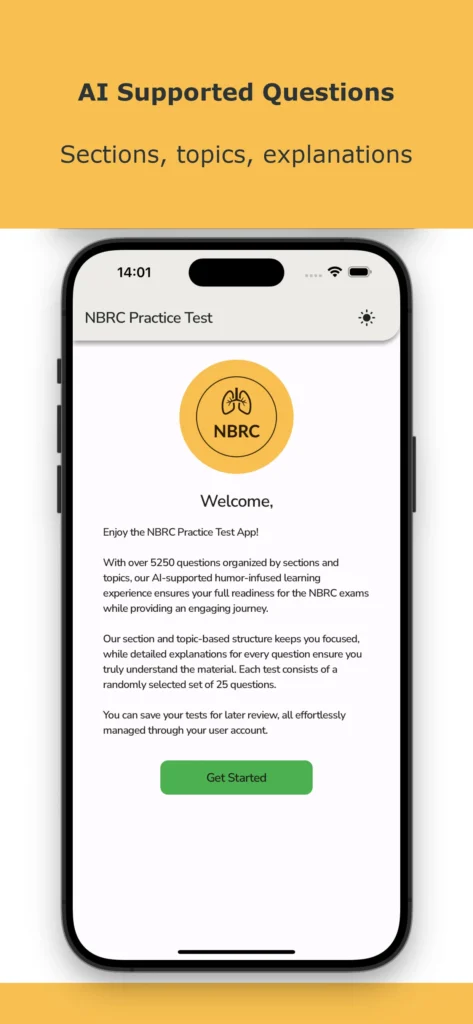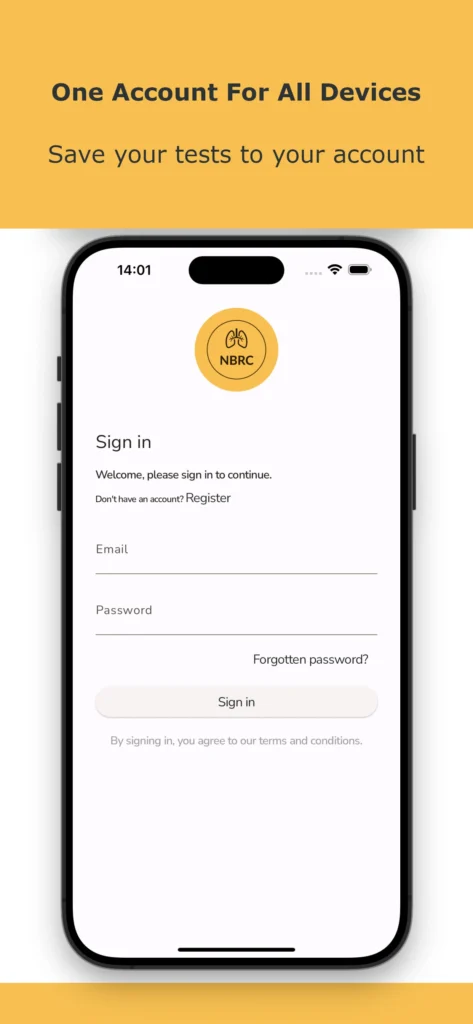Introduction to NBRC Credentials Verification
When it comes to ensuring excellence in respiratory care, the National Board for Respiratory Care (NBRC) plays a crucial role. As a healthcare professional in the field of respiratory care, it is essential to have the necessary credentials to demonstrate your expertise and commitment to providing high-quality care.
The NBRC is the leading organization responsible for credentialing respiratory therapists in the United States. They offer a range of specialty credentials that validate the knowledge and skills of respiratory care practitioners. In this section, we will provide an overview of NBRC credentials verification and the importance of maintaining active and up-to-date credentials.
What are the Three NBRC Specialty Credentials?
The NBRC offers three specialty credentials for respiratory therapists:
- 1. Certified Respiratory Therapist (CRT)
- 2. Registered Respiratory Therapist (RRT)
- 3. Sleep Disorders Testing and Therapeutic Intervention (SDS)
Each of these credentials represents a different level of expertise and specialization within the field of respiratory care. The CRT credential is the entry-level certification, while the RRT credential is the advanced-level certification. The SDS credential focuses specifically on sleep disorders testing and therapeutic intervention.
Why is NBRC Credentials Verification Important?
Verifying NBRC credentials is crucial for several reasons:
- Ensuring Competence: By verifying credentials, employers and patients can have confidence in the competence and expertise of respiratory care practitioners. It ensures that individuals have met the necessary educational and clinical requirements to provide safe and effective care.
- Maintaining Professional Standards: Credential verification helps maintain professional standards within the field of respiratory care. It ensures that practitioners stay up-to-date with the latest advancements and best practices in the industry.
- Compliance with Regulatory Requirements: Many states require respiratory therapists to hold valid and active NBRC credentials. Verifying credentials helps ensure compliance with these regulatory requirements.
What Happens if NBRC Credentials Expire?
It is essential to keep your NBRC credentials active and up-to-date. If your credentials expire, you may face various consequences:
- Employment Challenges: Many employers require respiratory therapists to have active NBRC credentials. If your credentials expire, it may limit your employment opportunities.
- Legal Implications: In some states, practicing respiratory care without valid credentials is illegal. Expired credentials may put you at risk of legal consequences.
- Continuing Education Requirements: Maintaining active credentials often requires fulfilling continuing education requirements. If your credentials expire, you may need to complete additional education to reinstate them.
Therefore, it is crucial to stay proactive and ensure that your NBRC credentials are always verified, active, and up-to-date.
Why Verify Your NBRC Credentials?
Verifying your NBRC credentials is an essential step in ensuring excellence in respiratory care. The National Board for Respiratory Care (NBRC) is the leading organization that grants credentials to respiratory therapists in the United States. By verifying your credentials, you can demonstrate your expertise, experience, and commitment to providing high-quality care to patients.
There are several reasons why it is important to verify your NBRC credentials:
1. Establishing Credibility
Verifying your NBRC credentials helps establish your credibility as a respiratory therapist. It demonstrates that you have met the rigorous standards set by the NBRC and have the necessary knowledge and skills to provide competent care. This can be particularly important when seeking employment or advancing in your career.
2. Ensuring Compliance
Verifying your credentials ensures that you are in compliance with the requirements set by the NBRC. It is important to stay up-to-date with the latest credentialing requirements to maintain your status as a respiratory therapist. Failure to verify your credentials may result in the expiration of your credentials, which can impact your ability to practice.
3. Meeting Regulatory Requirements
Many states and healthcare facilities require respiratory therapists to hold valid and verified NBRC credentials. By verifying your credentials, you can ensure that you meet the regulatory requirements of your state and employer. This is crucial for maintaining your licensure and employment eligibility.
4. Demonstrating Competence
Verifying your NBRC credentials demonstrates your competence in the field of respiratory care. It shows that you have undergone rigorous training and have successfully passed the required examinations. This can give patients and employers confidence in your abilities and enhance your professional reputation.
5. Accessing Professional Opportunities
Many professional opportunities, such as job openings, promotions, and leadership positions, require verified NBRC credentials. By verifying your credentials, you can unlock a wide range of professional opportunities and increase your chances of career advancement.
In conclusion, verifying your NBRC credentials is crucial for establishing credibility, ensuring compliance, meeting regulatory requirements, demonstrating competence, and accessing professional opportunities. It is a vital step in ensuring excellence in respiratory care and showcasing your expertise as a respiratory therapist.
How to Verify Your NBRC Credentials
Why Verify Your NBRC Credentials?
Verifying your NBRC credentials is an essential step to ensure excellence in respiratory care. By confirming the validity of your credentials, you demonstrate your commitment to professionalism, expertise, and ongoing education in the field.
Verification also plays a crucial role in maintaining the trust and confidence of patients, employers, and regulatory bodies. It provides assurance that you have met the rigorous standards set by the National Board for Respiratory Care (NBRC) and are qualified to provide high-quality care.
How to Verify Your NBRC Credentials
Verifying your NBRC credentials is a straightforward process that can be done online. Follow these steps to ensure the accuracy and validity of your credentials:
- Visit the NBRC website at www.nbrc.org.
- Click on the ‘Verify Credentials’ tab, usually located in the top navigation menu.
- Enter your personal information, including your name, NBRC credential number, and any other required details.
- Click on the ‘Submit’ or ‘Verify’ button to initiate the verification process.
- Wait for the system to process your request. This may take a few moments.
- Review the verification results displayed on the screen. Ensure that your name, credential type, and expiration date (if applicable) are accurate.
- If your credentials are valid, you will receive a confirmation message. You can also print or save a copy of the verification results for your records.
What to Do If Your Credentials Have Expired
If your NBRC credentials have expired, it is essential to take immediate action to rectify the situation. Expired credentials can jeopardize your ability to practice respiratory care and may lead to disciplinary actions.
To address expired credentials, follow these steps:
- Contact the NBRC directly to inquire about the renewal process and any additional requirements.
- Submit the necessary documentation and fees to renew your credentials.
- Complete any continuing education or competency requirements, if applicable.
- Once your renewal application is processed and approved, your credentials will be reinstated, and you can resume practicing respiratory care.
Remember, maintaining active and valid NBRC credentials is crucial for your professional growth and the safety of your patients. Regularly verify the status of your credentials and take prompt action to address any issues that may arise.
The Three NBRC Specialty Credentials
Introduction to NBRC Specialty Credentials
The National Board for Respiratory Care (NBRC) offers three specialty credentials that are recognized as the gold standard in respiratory care. These credentials demonstrate a respiratory therapist’s expertise and commitment to providing high-quality patient care. In this section, we will explore the three NBRC specialty credentials and their significance in the field of respiratory care.
1. Certified Respiratory Therapist (CRT)
The Certified Respiratory Therapist (CRT) credential is the entry-level certification offered by the NBRC. It validates the essential knowledge and skills required to practice as a respiratory therapist. Individuals who hold this credential have completed an accredited respiratory therapy program and passed the CRT examination.
Respiratory therapists with a CRT credential are qualified to provide basic respiratory care services, including administering oxygen therapy, performing chest physiotherapy, and conducting basic pulmonary function tests. They work under the supervision of a registered respiratory therapist or physician.
2. Registered Respiratory Therapist (RRT)
The Registered Respiratory Therapist (RRT) credential is the advanced-level certification offered by the NBRC. It is considered the standard for respiratory therapists who have achieved a higher level of knowledge and expertise in the field.
To obtain the RRT credential, respiratory therapists must first hold a CRT credential and then pass the Advanced Level Examination (written and clinical simulation). The RRT credential signifies a respiratory therapist’s ability to provide complex respiratory care, manage critical care patients, and make critical decisions in emergency situations.
Respiratory therapists with an RRT credential have a broader scope of practice and can work in various healthcare settings, including hospitals, intensive care units, and home care.
3. Sleep Disorders Testing and Therapeutic Intervention Specialist (SDS)
The Sleep Disorders Testing and Therapeutic Intervention Specialist (SDS) credential is designed for respiratory therapists who specialize in sleep medicine. This credential demonstrates their expertise in diagnosing and treating sleep disorders, such as sleep apnea.
To earn the SDS credential, respiratory therapists must hold an RRT credential and complete additional education and training in sleep disorders. They must also pass the Sleep Disorders Specialty Examination.
Respiratory therapists with an SDS credential are qualified to perform sleep studies, analyze sleep data, and provide therapeutic interventions for patients with sleep disorders. They work closely with sleep medicine physicians and other healthcare professionals to improve patients’ sleep quality and overall well-being.
Conclusion
The three NBRC specialty credentials, namely the Certified Respiratory Therapist (CRT), Registered Respiratory Therapist (RRT), and Sleep Disorders Testing and Therapeutic Intervention Specialist (SDS), play a crucial role in ensuring excellence in respiratory care. These credentials signify a respiratory therapist’s knowledge, skills, and commitment to providing the highest level of patient care. Whether you are a respiratory therapist seeking to advance your career or a healthcare organization looking to hire qualified professionals, the NBRC specialty credentials are a reliable measure of expertise and competence in the field of respiratory care.
What Happens if Your NBRC Credentials Expire?
If you are a respiratory care professional, you understand the importance of maintaining your credentials. The National Board for Respiratory Care (NBRC) is the leading organization that provides certification and credentialing for respiratory therapists. It ensures that respiratory care professionals meet the highest standards of competence and professionalism.
However, life can get busy, and it’s easy to overlook the expiration date of your NBRC credentials. So, what happens if your NBRC credentials expire? Let’s find out.
Loss of Professional Standing
When your NBRC credentials expire, you lose your professional standing as a certified respiratory therapist. This means that you can no longer use the credential initials after your name, and you may not be eligible for certain job opportunities or promotions that require active NBRC credentials.
Employers often prefer to hire respiratory therapists who have active NBRC credentials because it demonstrates their commitment to maintaining their knowledge and skills in the field. Without active credentials, you may find it more challenging to compete in the job market.
Impact on Licensure
In many states, holding active NBRC credentials is a requirement for obtaining or renewing a respiratory care license. If your NBRC credentials expire, it could affect your ability to practice legally as a respiratory therapist.
Renewing your NBRC credentials is essential to ensure that you meet the licensure requirements in your state. It’s important to stay updated on the expiration dates and renewal process to avoid any disruptions in your ability to practice.
Continuing Education Requirements
Renewing your NBRC credentials typically involves meeting continuing education requirements. These requirements ensure that respiratory care professionals stay current with the latest advancements and best practices in the field.
When your credentials expire, you may need to complete additional continuing education courses or activities to reinstate them. This not only requires time and effort but also additional expenses for the courses or activities.
Reinstatement Process
If your NBRC credentials have expired, don’t panic. The NBRC provides a reinstatement process that allows you to regain your credentials. The specific requirements and process may vary depending on the length of time since your credentials expired.
Typically, the reinstatement process involves submitting an application, providing proof of completion of continuing education, and paying a reinstatement fee. It’s important to carefully follow the instructions provided by the NBRC to ensure a smooth reinstatement process.
Conclusion
Keeping your NBRC credentials active is crucial for maintaining your professional standing, ensuring licensure compliance, and staying up-to-date with the latest developments in respiratory care. If your credentials have expired, it’s important to take immediate action to reinstate them through the NBRC’s reinstatement process.
Remember, maintaining your NBRC credentials not only benefits your career but also demonstrates your commitment to providing excellent respiratory care to patients.
Conclusion
In conclusion, the NBRC credentials verification process is crucial for ensuring excellence in respiratory care. By verifying the credentials of respiratory therapists, the NBRC plays a vital role in upholding the standards of the profession and ensuring the safety and well-being of patients.
Through the verification process, the NBRC confirms the authenticity and validity of a respiratory therapist’s credentials, including their education, training, and certification. This helps employers, healthcare organizations, and the public have confidence in the qualifications and expertise of respiratory therapists.
The NBRC offers three specialty credentials for respiratory therapists: the Certified Respiratory Therapist (CRT), the Registered Respiratory Therapist (RRT), and the Sleep Disorders Testing and Therapeutic Intervention Specialist (SDS). Each of these credentials represents a different level of knowledge and skill in respiratory care.
To maintain their credentials, respiratory therapists must meet certain requirements, including continuing education and periodic renewal. This ensures that they stay up-to-date with the latest advancements in respiratory care and maintain their competence in the field.
It is important to note that the NBRC also provides a platform for individuals and employers to verify the status of a respiratory therapist’s credentials. This can be done through the NBRC’s online verification system, which allows users to search for and confirm the credentials of a respiratory therapist.
In summary, the NBRC credentials verification process is essential for maintaining the highest standards of respiratory care. By verifying the credentials of respiratory therapists, the NBRC ensures that patients receive care from qualified and competent professionals. It also provides a means for individuals and employers to verify the status of a respiratory therapist’s credentials, promoting transparency and accountability in the field.
If you have any questions or need further information about NBRC credentials verification, please visit the NBRC website or contact their customer service. Remember, ensuring excellence in respiratory care starts with verifying the credentials of respiratory therapists.








